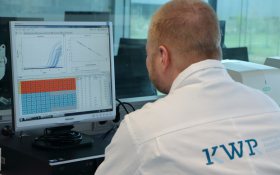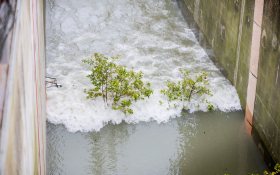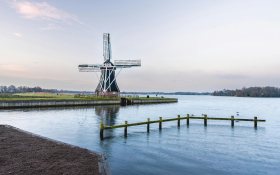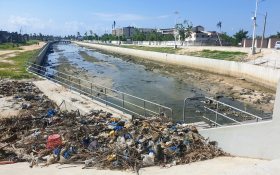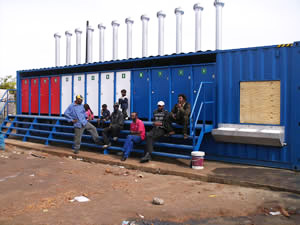Landustries places second generation MobiSan dry sanitation unit in Cape Town
The Dutch firm Landustrie has placed a second generation MobiSan dry sanitation unit in Cape Town, South Africa. The unit is ready for use at once, without water or power supply. The first version was placed in 2008 and as the results and experiences with this new sanitation method, Landustrie developed this new improved version.
The new one includes smaller toilets that are easier to transport to install.
More units linked together
The MobiSan unit is continuously staffed with local (community) caretakers (2 per unit), previously trained and responsible for the cleansing, operation and maintenance of the system. Depending on the size of the township, several units can be linked together. MobiSan units are produced locally in order to keep costs low and to stimulate local employment.
Urine collected separately
MobiSan is a dry sanitation and urine diversion stand alone, portable and self-contained system, which does not affect groundwater. It is equipped with 13 toilets and 12 urinals with the urine being channelled away into a container tank.
Avoid contact with faeces
The processing of the faeces is based on a double-vault system to avoid contact. The faecal matter end up in the first collection chamber and is mixed manually through a mechanical device. When the vault is full its content is transferred to the second chamber with the help of the mixing device while the first one remains in use. In the second chamber the faecal matter is stored for further hygienisation and improvement of the end product quality.
Good compost for vegetable gardens
The objective is to obtain a dry mixture that is pathogen free and therefore suitable for use in certain types of vegetable gardens.
More information on MobiSan: Landustrie, Sneek +31 515 486 888
More information: South Africa-Netherlands Water network, Water Institute of Southern Africa (WISA) +27 11 805 3537
